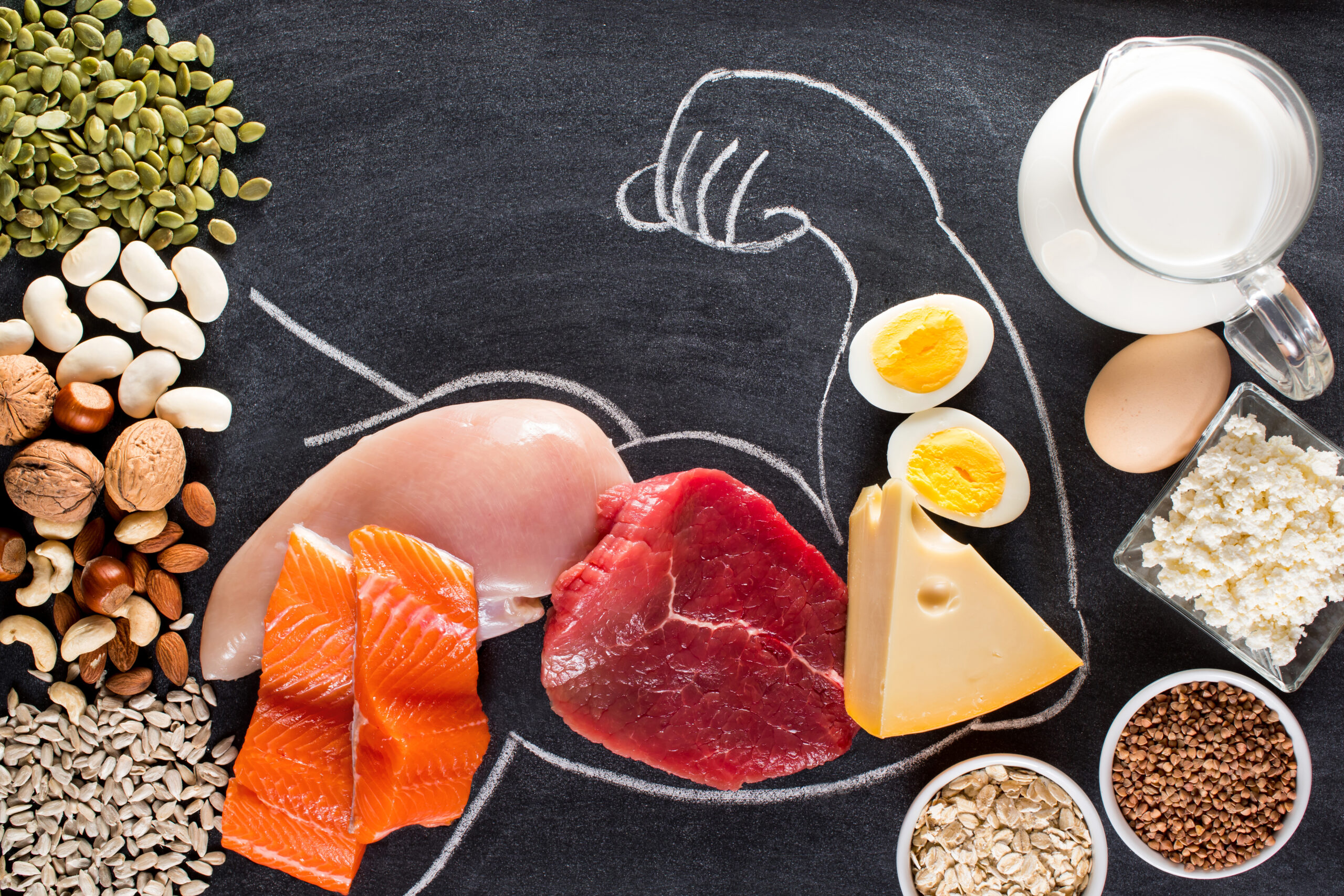How to Build Lean Muscle Outside of Training: QA with an F45 Nutritionist
Kim Bowman, MS F45 Challenge Nutritionist

Regardless of whether you’re looking to tone up or focus more on fat loss this Challenge, developing lean body mass is metabolically beneficial. According to F45 Challenge Nutritionist Kim Bowman, “lean muscle mass gives us an energy boost and allows us to maintain a high level of training intensity.” Additionally, when we increase our lean body mass, we boost our metabolism which promotes calorie burning even after we’ve finished training for the day. Not only does an increase in muscle mass help us recover faster but we’ll also avoid training plateaus and induce positive physiological adaptations at a faster rate as a result. Aside from strength training, prioritizing post-workout nutrition and recovery is key for optimizing muscle growth. Kim has answered a few of the most common questions when it comes to optimizing lean muscle development aside from resistance training.
Why is protein important for muscle development?
Protein provides essential amino acids that are required for muscle protein synthesis (muscle building) to occur. To maximize recovery and muscle repair after a workout, it’s important to fuel up with a quality source of protein within approximately 30-60 minutes of completing your workout. When your diet lacks amino acids, muscle wasting (also known as muscle atrophy) can occur as muscle fibres start to break down to support your body’s energy needs. Complete proteins including grass-fed beef, wild-caught fish, and organic, free-range eggs contain all nine of the essential amino acids. For those who are plant-based, quinoa, beans, and lentils are also great sources of protein to fuel up with after training to support muscle growth.

What about protein shakes?
Protein shakes are an ideal snack to have after completing a high intensity workout because they can be taken on-the-go straight after training. This ensures your body gets an immediate source of amino acids to start the muscle repair recovery process right away. However, it’s best to get the majority of your protein intake through whole food sources as opposed to protein shakes. Protein-rich whole foods also contain a number of health-benefiting nutrients such as antioxidants, vitamins, and minerals which further support training adaptations. Wild-caught salmon for example is a rich source of omega-3 fatty acids which have been shown to benefit muscle repair following HIIT.
How many calories should I be consuming each day?
Aside from protein, it’s important to ensure you’re fuelling up with enough quality carbohydrates and healthy fats from nutrient-dense, whole foods. When it comes to maintaining or increasing lean body mass, it’s critical to know your recommended daily caloric intake in order to maximize training adaptations.
In the tracking section of the F45 Challenge app you’ll find a calorie calculator that can be used to estimate your optimal daily calorie needs for a particular training goal. Why is this important? Daily calorie intake largely varies from person to person depending on a variety of factors including; current body composition (biometrics), basal metabolic rate, activity level, and long-term fitness goal. Therefore, if your goal is to build more lean muscle, calculating your recommended calorie intake in relation to your personal biometrics will help you understand whether or not you’re obtaining sufficient fuel to support muscle growth. For example, the amount of protein and total daily calories required for an elite triathlete training 7 days a week will largely differ in comparison to someone who was previously sedentary and has just started training 2 days per week.

How does sleep affect lean muscle development?
When it comes to lean muscle development, sleep is essential for allowing training adaptations to occur. As we sleep, the body goes through a number of physiological processes to repair and rebuild muscle tissue following intense exercise. Growth hormone plays a key role in muscle protein synthesis and is naturally released into the bloodstream overnight while we sleep. When we are sleep deprived however, our body cannot efficiently produce growth hormone, limiting the extent of muscle repair and growth that can occur. In general, we need at least 7 to 8 hours of quality sleep each night to allow the body to adequately recover.
For more information about how you can optimize lean muscle development outside of training, download the F45 Challenge App (iOS & Android). Here you’ll gain access to a number of resources including the calorie calculator, nutrition blogs, and a variety of high protein recipes.
Related articles:
How Much Protein Do I Need? Tips on How to Choose Your Protein Intake
5 Ways to Increase Quality Plant-Based Protein
Why Protein is the Key to Fat Loss
Watch QA: How to Build Lean Muscle with F45 Nutritionist Kim Bowman
